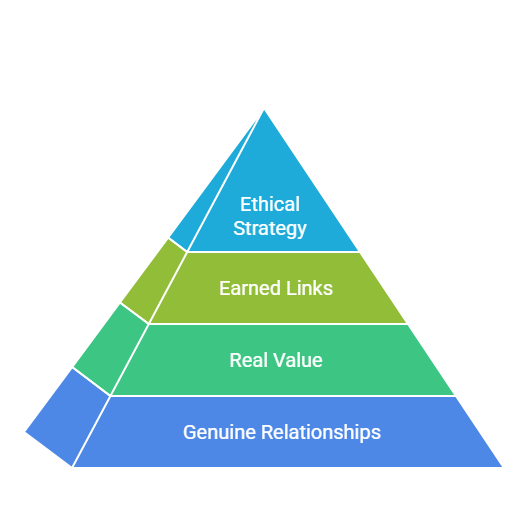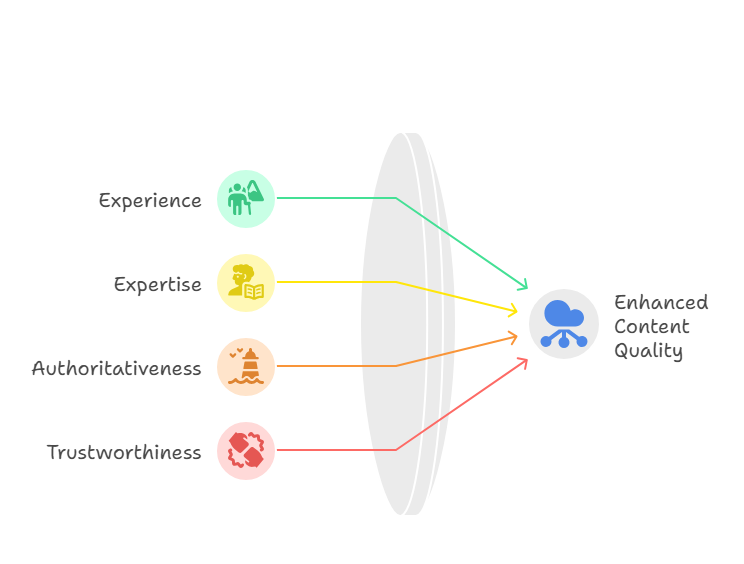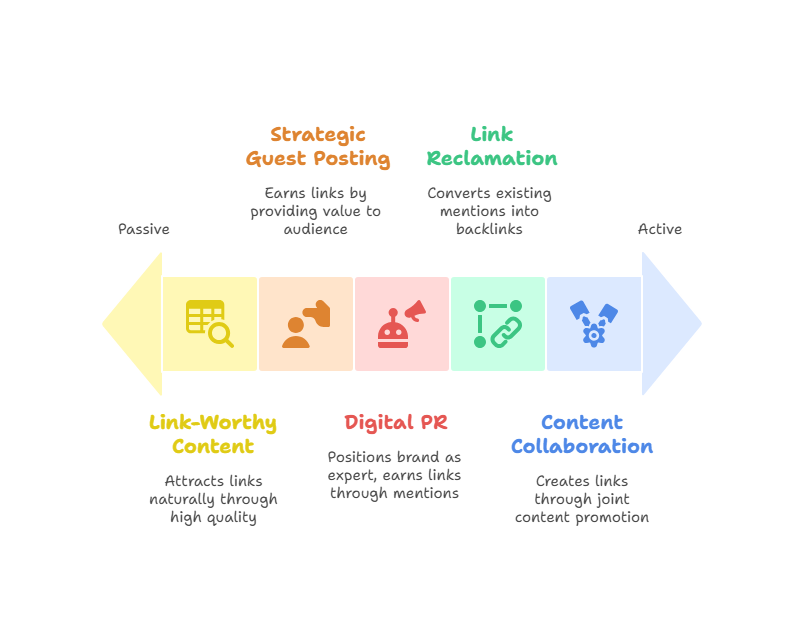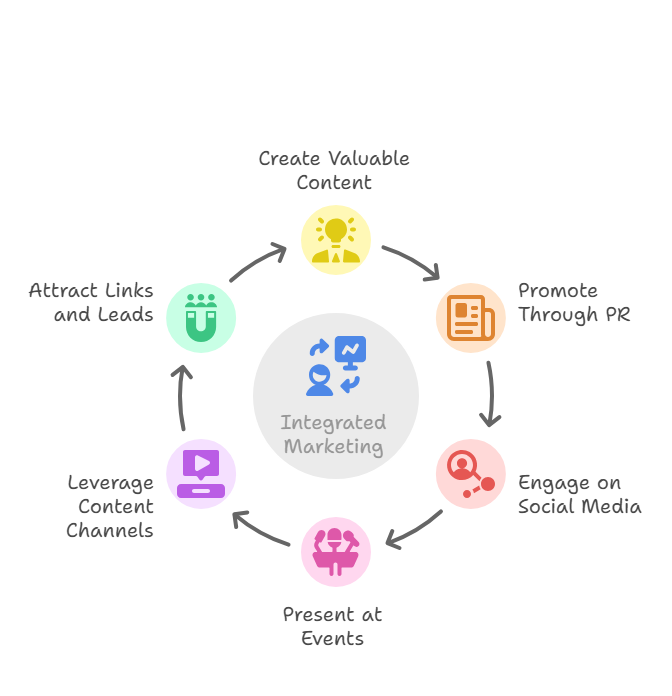Let’s be honest: link building can feel like walking through a minefield. One wrong step, and BOOM—your website gets penalized by Google faster than you can say “algorithm update.”
But here’s the thing: ethical link building isn’t just about avoiding penalties. It’s about building a sustainable SEO strategy that actually works in the long run. While your competitors are busy chasing shortcuts and quick fixes, you’ll be building real authority that stands the test of time.
According to Backlinko’s recent Link Building Study, websites using ethical link building strategies see 3.2x more sustained organic traffic growth compared to those using manipulative tactics.
In this comprehensive guide, I’ll show you exactly how to build high-quality backlinks the right way. No tricks, no schemes, no shady tactics—just proven strategies that Google loves and your audience will appreciate.
What Is Ethical Link Building?
Ethical link building is the practice of earning backlinks through legitimate, value-driven methods that comply with search engine guidelines. It’s about creating genuine relationships, providing real value, and earning links because your content truly deserves them.

Think of it this way: if you wouldn’t be embarrassed to explain your link building strategy to a Google engineer at a conference, you’re probably on the right track.
“The best link building strategy is no longer a strategy at all. It’s creating content so good that people can’t help but link to it.” – Brian Dean, Backlinko
Why It Matters for Long-Term SEO
Here’s what most people don’t realize: Google’s algorithms are getting smarter every single day. What worked five years ago (or even last year) might not just be ineffective—it could actively hurt your rankings.
Research from Ahrefs’ 2024 SEO Study shows that 91% of pages that rank in the top 10 have at least one organic backlink, and the average top-ranking page has 3.8x more backlinks than pages ranking 2-10.
Ethical link building matters because:
- It builds lasting authority that compounds over time
- It protects you from algorithm updates and penalties
- It creates real business value beyond just SEO
- It establishes genuine relationships in your industry
- It drives qualified traffic that actually converts
When you focus on ethical strategies, you’re not just building links—you’re building a brand that people trust and want to reference.
How It Differs From Black-Hat and Gray-Hat Tactics
Let me break this down with some real examples:
Black-Hat Tactics (Don’t Do These):
- Buying links from link farms
- Using private blog networks (PBNs)
- Participating in link exchanges or schemes
- Hiding links or using deceptive anchor text
Gray-Hat Tactics (Risky Business):
- Guest posting on low-quality sites just for links
- Reciprocal linking without genuine value exchange
- Over-optimized anchor text in outreach
- Mass directory submissions
White-Hat/Ethical Tactics (The Sweet Spot):
- Creating genuinely valuable content that naturally attracts links
- Building real relationships with industry peers
- Earning mentions through thought leadership
- Providing expert commentary and insights
The difference is simple: ethical link building focuses on providing value first, with links as a natural byproduct.
Why Google Loves Ethical Links
Understanding Google’s Link Guidelines
Google’s been pretty clear about what they want: links should be editorial votes of confidence. When another website links to yours, it should be because they genuinely believe their audience will benefit from your content.
Google’s webmaster guidelines emphasize that the best way to get other sites to create relevant links to your site is to create unique, relevant content that can naturally gain popularity in the internet community.
The key word here is “naturally.” Google can detect when links are forced, manipulated, or purchased. Their algorithms look for patterns that indicate authentic editorial choices versus artificial link schemes.
How Links Influence E-E-A-T (Experience, Expertise, Authoritativeness, Trustworthiness)
Google’s E-E-A-T framework is central to how they evaluate content quality, and links play a huge role in this assessment. According to Google’s Quality Rater Guidelines 2024, high-quality backlinks from authoritative sources are one of the strongest signals of expertise and trustworthiness.

Experience: Links from sites that demonstrate real-world experience in your field signal that your content is practical and applicable.
Expertise: When industry experts and authoritative sources link to your content, it demonstrates that knowledgeable people find your information valuable and accurate.
Authoritativeness: Links from established, respected websites in your industry help establish your site as an authoritative source on your topics.
Trustworthiness: Editorial links from reputable sources signal that your content is reliable and trustworthy.
“E-E-A-T isn’t just about what you say about yourself—it’s about what the entire web ecosystem says about you through their linking patterns.” – Marie Haynes, Marie Haynes Consulting
This is why a single link from a highly respected industry publication can be worth more than dozens of links from random blogs.
Recent Google Updates That Crack Down on Link Manipulation
Google has been increasingly aggressive about penalizing manipulative link practices. The December 2023 Helpful Content Update and March 2024 Spam Update specifically targeted:
- Link spam: Automated or mass-generated links that add no value
- Paid links: Links that are clearly purchased rather than earned
- Irrelevant links: Links from completely unrelated websites or topics
- Low-quality guest posting: Generic, thin content created solely for link placement
According to SEMrush’s 2024 Penalty Recovery Report, 73% of websites hit by recent Google updates were using manipulative link building tactics.
The message is clear: Google rewards sites that earn links through genuine value creation, and penalizes those that try to game the system.
The Core Principles of Ethical Link Building
No Tricks or Shortcuts
I know it’s tempting to look for the “secret hack” that will get you 100 backlinks overnight. But here’s the truth: sustainable link building takes time, effort, and genuine value creation.
Instead of looking for shortcuts, focus on:
- Building genuine relationships in your industry
- Creating content that people actually want to share
- Providing real value to your target audience
- Being patient and consistent with your efforts
Remember: if it seems too good to be true, it probably is.
Quality Over Quantity
One high-quality link from an authoritative, relevant website is worth more than 100 low-quality links from random directories or blog networks. Research from Moz’s 2024 Link Authority Study found that a single link from a Domain Authority 70+ site provides more ranking benefit than 50 links from sites below DA 30.
When evaluating link opportunities, ask yourself:
- Is this website relevant to my industry or niche?
- Does it have real traffic and engagement?
- Would I be proud to be associated with this site?
- Does linking to my content make sense in this context?
If you can’t answer “yes” to all of these questions, it’s probably not worth pursuing.
Relevance, Value, and Transparency
Every ethical link building effort should be built on three pillars:
Relevance: The linking site and context should be relevant to your industry, audience, or topic. A link from a cooking blog to your accounting software probably isn’t going to help anyone.
Value: Your content should provide genuine value to the linking site’s audience. Ask yourself: “Why would their readers care about this?”
Transparency: Be honest about your intentions and relationships. If you’re collaborating with someone or providing something in exchange for coverage, be upfront about it.
High-Impact Ethical Link Building Strategies

1. Create Link-Worthy Content
The foundation of ethical link building is creating content that people naturally want to link to. Here are the types of content that consistently earn backlinks:
Original Research & Data Studies
Nothing attracts links like original data. When you conduct your own research and publish unique insights, you become the primary source that everyone else wants to reference.
HubSpot’s 2024 Content Marketing Report reveals that original research content receives 3.5x more backlinks than repurposed content.
For example, you could:
- Survey your customer base about industry trends
- Analyze data from your own tools or platform
- Compile statistics from multiple sources into a comprehensive report
- Conduct experiments and share the results
The key is to focus on data that’s genuinely useful to your industry. Don’t just collect random statistics—answer questions that people actually have.
Skyscraper Method (Updated for 2025)
The Skyscraper Method, popularized by Brian Dean, involves finding popular content in your niche and creating something significantly better. But in 2025, “better” doesn’t just mean longer.
According to Backlinko’s updated analysis, the most successful Skyscraper campaigns focus on improving user experience and adding unique insights rather than just word count.
Here’s how to make it work today:
- Find link-worthy content: Use tools like Ahrefs to find content with lots of backlinks
- Identify gaps: What’s missing from the existing content? What questions aren’t answered?
- Add unique value: Don’t just make it longer—make it more useful, more current, or more comprehensive
- Improve the format: Add visual elements, interactive tools, or better organization
- Update for relevance: Include recent developments, new data, or current examples
Remember: you’re not just trying to be bigger—you’re trying to be better.
Expert Roundups, Case Studies, and Ultimate Guides
These content formats naturally attract links because they provide comprehensive value:
Expert Roundups: Collect insights from multiple industry experts on a specific topic. This works because the experts often share the content with their own audiences.
Case Studies: Share detailed analysis of real results, whether from your own work or public examples. People love concrete examples they can learn from.
Ultimate Guides: Create the most comprehensive resource on a specific topic. Think of it as the Wikipedia page for your niche.
“The content that earns the most links isn’t the content that’s optimized for search engines—it’s the content that’s optimized for humans.” – Rand Fishkin, SparkToro
2. Strategic Guest Posting (The Right Way)
Guest posting gets a bad rap because so many people do it wrong. But when done ethically, it’s still one of the most effective link building strategies.
Finding Reputable, Niche-Relevant Sites
The key to ethical guest posting is being extremely selective about where you pitch. Look for sites that:
- Have genuine readership and engagement
- Publish high-quality, well-researched content
- Are directly relevant to your industry or audience
- Have clear editorial standards
- Don’t accept just anyone as a guest author
Avoid sites that obviously exist just for SEO purposes or accept low-quality content.
How to Pitch Value-Driven Guest Posts
Your pitch should focus entirely on the value you can provide to their audience, not the link you want to get. Authority Hacker’s 2024 Guest Posting Study found that pitches focusing on audience value have a 64% higher acceptance rate than those mentioning SEO benefits.
Here’s a simple formula:
- Personalization: Show that you actually read their site
- Specific topic idea: Propose something unique and valuable
- Your credentials: Briefly explain why you’re qualified to write on this topic
- Content samples: Link to your best previous work
Never mention links in your initial pitch. Focus on providing value, and the link opportunity will naturally follow.
3. Digital PR & Thought Leadership
Digital PR is about positioning yourself or your brand as a go-to expert in your field. When journalists and content creators see you as a reliable source, they’ll naturally link to your content and quote your insights.
Newsjacking and HARO (Help a Reporter Out)
Newsjacking involves adding your expert perspective to trending news stories in your industry. When something big happens, be ready to provide thoughtful commentary that adds value to the conversation.
HARO connects journalists with expert sources. By responding to relevant queries with helpful, detailed responses, you can earn mentions and links in major publications.
According to HARO’s 2024 Success Report, sources who provide detailed, data-backed responses are 5x more likely to be featured.
Pro tip: Focus on being genuinely helpful rather than promotional. Journalists can spot self-serving responses from a mile away.
Expert Commentary on Trending Topics
Stay active on industry Twitter, LinkedIn, and relevant forums. When you consistently provide valuable insights on trending topics, people start to recognize you as an expert worth quoting and linking to.
The key is consistency and authenticity. Don’t just jump on every trend—focus on topics where you have genuine expertise and unique perspectives to offer.
4. Link Reclamation and Brand Mentions
This is often the easiest link building strategy because you’re working with people who already know about your brand or content.
Find and Convert Unlinked Mentions
Use tools like Google Alerts, Mention, or Ahrefs to find places where people mention your brand, products, or content without linking to you. Then reach out with a friendly request to add the link.
BuzzSumo’s 2024 Link Reclamation Study shows that unlinked mention conversion requests have an 89% success rate when done politely.
Your message should be brief and helpful:
“Hi [Name], I noticed you mentioned [Your Brand] in your recent article about [Topic]. Thank you for the reference! I thought you might want to link to [specific relevant page] to give your readers more context. Either way, thanks for mentioning us!”
Fix Broken Links to Your Site
Sometimes sites that used to link to you have broken links due to URL changes, site migrations, or other technical issues. These are easy wins because the site owner already decided your content was worth linking to.
Find broken links using tools like Ahrefs’ Site Explorer, then reach out to suggest the correct URL.
5. Content Collaboration and Co-Marketing
Partnering with others in your industry can create natural link opportunities while providing genuine value to both audiences.
Partner with Influencers or Brands for Joint Content
Collaborate on content that benefits both parties:
- Co-authored research reports
- Joint webinars or podcasts
- Collaborative tools or resources
- Industry surveys or studies
When you create something together, it’s natural for both parties to link to and promote the content.
Mutually Beneficial Link Exchanges Within Guidelines
While Google frowns on manipulative link exchanges, genuine partnerships that provide value to both audiences are fine. The key is that the links make sense editorially and provide value to readers.
For example, if you partner with a complementary business to create a comprehensive guide, it makes perfect sense for both of you to reference each other’s expertise and link to relevant resources.
Advanced (Yet Ethical) Link Building Techniques
Using Tools and Automation—The Safe Way
Tools can make your link building more efficient, but they should enhance human relationship-building, not replace it.
How to Use Ahrefs, BuzzStream, and Pitchbox Without Spamming
Ahrefs: Use it for research and opportunity identification, not mass outreach. Find broken links, analyze competitor backlinks, and identify potential targets—but always personalize your outreach.
BuzzStream and Pitchbox: These tools help you organize your outreach efforts and track relationships. Use them to:
- Keep track of your outreach conversations
- Set reminders for follow-ups
- Organize your prospect lists
- Template common elements while keeping messages personal
The key is using these tools to be more organized and efficient, not to send mass, impersonal emails.
Email Templates for Outreach that Build Trust
Good templates save time while ensuring you cover all the important points. Here’s a framework that works:
Subject: [Specific reference to their content] – Quick question
Hi [Name],
I was just reading your article about [specific topic] and really appreciated your point about [specific detail].
[Add genuine value or insight related to their content]
I actually created a [resource/tool/study] that your readers might find helpful: [brief description].
Would you be interested in taking a look? No worries if it’s not a fit!
Best,
[Your name]
Notice how this focuses on their content first, adds value, and makes a soft suggestion rather than a demanding request.
Local and Niche-Focused Link Tactics
Industry Directories and Local Citations
Not all directories are created equal. Focus on:
- Industry-specific directories with editorial standards
- Local business directories for location-based businesses
- Professional association listings
- Chamber of Commerce and similar organizations
Avoid general web directories that accept anyone without review.
Niche Forums and Communities
Participate genuinely in industry forums, Reddit communities, and niche discussion groups. Focus on being helpful rather than promotional. When you consistently provide value, people will naturally check out your profile and website.
Remember: most forums are “nofollow,” so the SEO benefit is indirect. The real value comes from building relationships and establishing expertise.
How to Integrate Link Building with Content Marketing & PR

Building Authority Through Multi-Channel Strategies
The most effective link building happens when it’s integrated with your broader marketing strategy. Instead of treating link building as a separate activity, weave it into everything you do:
- Content creation: Always consider link potential when planning content
- PR efforts: Think about how press coverage can generate backlinks
- Social media: Use social platforms to build relationships that lead to links
- Events and speaking: Conference presentations often result in natural links
“The most sustainable link building strategies don’t feel like link building at all—they feel like relationship building and value creation.” – Aleyda Solis, Orainti
Leveraging Your Blog, YouTube, Social, and Podcasts for Links
Each content channel can support your link building efforts:
Blog: Create comprehensive resources that become go-to references in your industry
YouTube: Video content often gets embedded and linked to from blog posts and articles
Social Media: Build relationships with influencers and potential link partners
Podcasts: Interview industry experts who often share episodes with their audiences
The key is creating a content ecosystem where each channel supports and amplifies the others.
Creating “Link Magnets” Within Your Sales Funnel
Your best link building assets might also be your best lead generation tools:
- Free tools and calculators
- Comprehensive industry reports
- Template libraries and resource collections
- Educational webinar series
When you create resources that are genuinely useful, they naturally attract both links and potential customers.
What NOT to Do: Unethical Link Tactics to Avoid
Buying Links or Participating in Link Schemes
This should be obvious, but it’s worth repeating: don’t buy links. This includes:
- Direct payment for links
- Participating in link exchange networks
- Buying “sponsored posts” that are really just paid links
- Using services that promise guaranteed links
Google is very good at detecting these patterns, and the penalties can be severe. Google’s 2024 Spam Report shows that manual penalties for purchased links increased by 127% over the previous year.
Spamming Blog Comments, Forums, or Web 2.0 Sites
Mass commenting or posting generic content across multiple sites is not only ineffective—it can hurt your reputation. Real engagement takes time and genuine interest.
Private Blog Networks (PBNs) and Other Risky Shortcuts
PBNs might provide short-term gains, but they’re essentially ticking time bombs. When Google discovers them (and they usually do), all sites in the network get penalized.
Other risky tactics to avoid:
- Article spinning and automated content creation
- Link farms and three-way link exchanges
- Hidden or misleading anchor text
- Irrelevant directory submissions
What You Can Learn from Ethical SEOs in the Field
Common traits of successful ethical link builders:
- They play the long game: Focus on building lasting authority rather than quick wins
- They prioritize relationships: Invest time in genuine connections with industry peers
- They create real value: Every piece of content serves a genuine purpose for their audience
- They stay informed: Keep up with industry changes and adapt their strategies accordingly
- They measure the right metrics: Focus on quality indicators rather than just link quantity
Ethical Link Building Tools & Resources
Outreach and Prospecting Tools
Research and Analysis:
- Ahrefs – Comprehensive backlink analysis and competitor research
- SEMrush – Keyword research and competitive analysis
- Moz Link Explorer – Domain authority and link metrics
Outreach Management:
- BuzzStream – Relationship management and outreach organization
- Pitchbox – Automated outreach with personalization
- Hunter.io – Email finder and verification
Monitoring and Alerts:
- Google Alerts – Free monitoring for brand mentions
- Mention – Comprehensive social and web monitoring
- Brand24 – Real-time mention tracking
Tracking and Analyzing Link Performance
Key metrics to track according to Moz’s Link Building Guide:
- Referring domains: Number of unique websites linking to you
- Link quality: Authority and relevance of linking sites
- Anchor text distribution: Variety and naturalness of link text
- Traffic impact: Actual visitors coming from your links
- Conversion impact: How link traffic converts to customers
Remember: not all links are created equal. A few high-quality, relevant links are worth more than dozens of low-quality ones.
Templates: Cold Emails, Link Reclamation Requests, Guest Post Pitches
Link Reclamation Template:
Subject: Quick fix for your [Article Title] post
Hi [Name],
I was reading your excellent article about [topic] and noticed you mentioned [your brand/content] but the link seems to be missing.
I thought you might want to link to [specific URL] to give your readers the full context.
Thanks for the mention either way!
Best,
[Your name]
Value-First Outreach Template:
Subject: [Specific reference to their content]
Hi [Name],
I just finished reading your post about [specific topic] and wanted to share a quick insight that might interest you:
[Share genuine value or insight]
I actually created a [resource type] that dives deeper into this topic: [brief description and URL]
Thought your readers might find it useful. No worries if not!
Keep up the great work,
[Your name]
Conclusion: Future-Proof Your SEO with Ethical Link Building
Why Google Will Keep Rewarding Ethical Strategies
Google’s ultimate goal is to provide the best possible search results for their users. This means they want to surface content from authoritative, trustworthy sources that provide genuine value.
As AI and machine learning continue to evolve, Google gets better at detecting artificial link patterns and manipulation. But they also get better at recognizing genuine authority and value.
This trend will only continue. The websites that thrive in the future will be those that build real authority through ethical means—creating valuable content, building genuine relationships, and earning links through merit rather than manipulation.
Start Small, Stay Consistent, and Watch Your Rankings Rise
You don’t need to implement every strategy in this guide all at once. In fact, trying to do too much too fast often leads to poor execution and mediocre results.
Instead, pick 2-3 strategies that align with your strengths and resources:
- If you’re good at creating content, focus on the content-based strategies
- If you’re comfortable with outreach, start with guest posting and digital PR
- If you have existing brand mentions, begin with link reclamation
The key is consistency. It’s better to do a few things really well than to spread yourself too thin across every possible tactic.
Take Action: Create Your First Link-Worthy Asset Today
Here’s your homework: before you do anything else, create one piece of genuinely link-worthy content. It doesn’t have to be perfect, and it doesn’t have to be comprehensive. It just needs to provide real value to your target audience.
Some ideas to get you started:
- Compile a list of industry statistics with sources
- Create a simple tool or calculator
- Write a detailed case study of your own experience
- Interview an expert in your field
- Document a process that others could learn from
Once you publish that content, you’ll have something concrete to build your link building efforts around. And more importantly, you’ll have taken the first step toward building the kind of authority that attracts links naturally.
Remember: ethical link building isn’t just about following the rules—it’s about building something genuinely worth linking to. When you focus on creating real value for real people, the links will follow.


